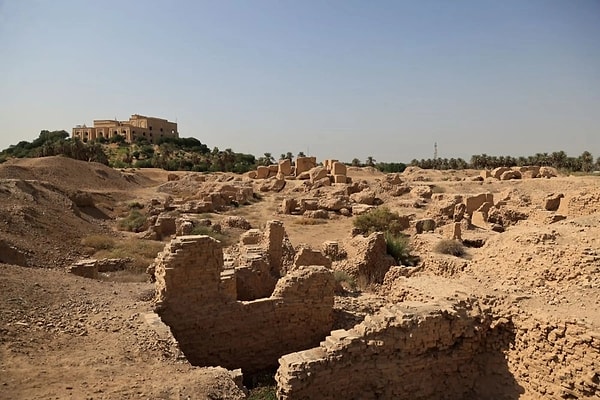Ancient Babylonian Tablets Reveal Chilling 4,000-Year-Old Prophecies of Death
Researchers have successfully deciphered 4,000-year-old Babylonian tablets found in Iraq, uncovering eerie prophecies written on them. Among the ominous predictions, the tablets also contain forewarnings of a king’s death.
Clay tablets, discovered nearly 100 years ago in present-day Iraq and with a history dating back 4,000 years, have finally been deciphered.

The tablets, which are currently housed in the British Museum, were discovered in Iraq a century ago. After extensive studies, the inscriptions on the tablets have finally been brought to light. Researchers succeeded in translating the cuneiform script on the tablet into a modern language.
The tablets, dating back to the Babylonian period, are said to contain prophecies about "apocalypse, death, and days filled with gloom."

The study, published in the Journal of Cuneiform Studies, revealed that the writings on the tablets show that the ancient Babylonians viewed lunar eclipses as omens of impending disaster.
Andrew George, an honorary professor of Babylonian language at the University of London, and independent researcher Junko Taniguchi stated in their study, 'They represent the oldest compilation of omens related to lunar eclipses discovered so far and thus provide significant new information about celestial prophecy among the peoples of southern Mesopotamia in the early second millennium BC.'
The tablets include predictions and prophecies of impending disasters for people or states, as well as the anxieties and concerns that plagued ancient Mesopotamian cultures.

One prophecy warns, 'When an eclipse begins suddenly from the center, darkens completely, and then clears up again: a king will die, and Elam will be destroyed.' Elam is known to be a region in present-day Iran.
Other prophecies include references to "the fall of Subartu and Akkad" and "An eclipse during the evening watch: this signals a plague."

In Babylon and Mesopotamia, where it was believed that celestial events could predict the future, rulers often consulted astrologers who observed the night sky and compared their observations with omen texts.
If any prophecy stated that "a king will die," the king would resort to additional rituals, such as examining animal entrails.

There were also precautions that could be taken against bad omens. Kings could perform protective rituals to counteract negative prophecies!
Keşfet ile ziyaret ettiğin tüm kategorileri tek akışta gör!


Send Comment